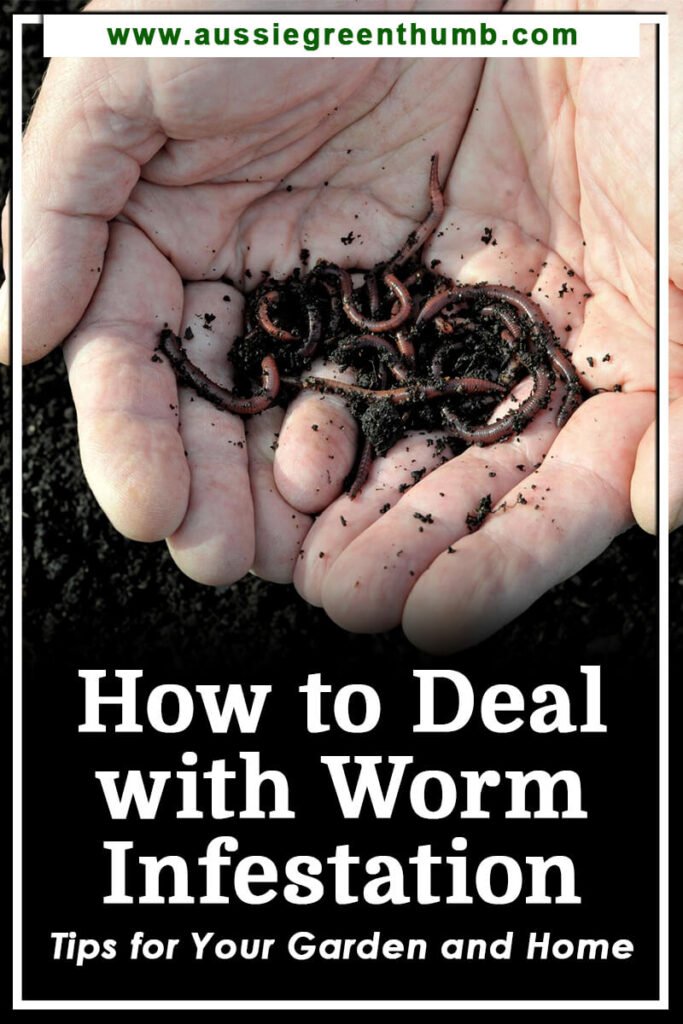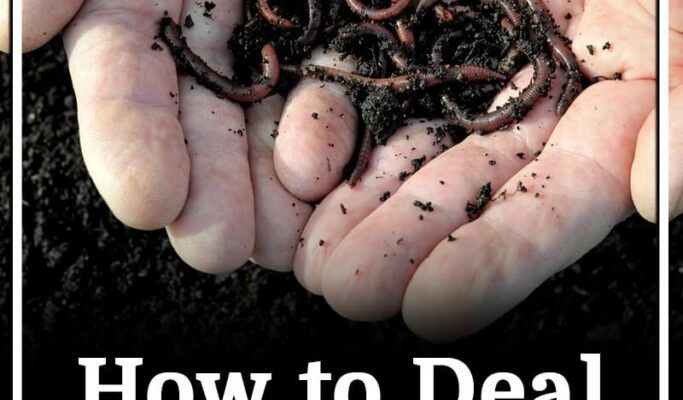
Let me explain. Just like cleaning your home can prevent unwanted pests and the spread of dirt, maintaining a clean garden space can help control worm populations. You might be wondering, “How do I keep my garden clean without turning it into a barren landscape?” We’ll dive into that as we explore essential methods and practices for sanitation that every gardener can adopt. So grab a cup of coffee, and let’s dig in!
Understanding Worm Infestations
When we talk about worm infestations, it’s important to clarify what we mean. Not all worms are bad! For instance, earthworms are fantastic for aerating the soil and enhancing nutrient absorption. However, certain types of worms—like the notorious cabbage worm—can wreak havoc on your plants. If left unchecked, these pests can quickly multiply and cause significant damage.
A good way to recognize an infestation is to observe the plants’ health. Are leaves wilting? Is there unusual chewing on your greens? If you suspect worms, it’s crucial to act fast. By understanding these nuisances, you’ll be better prepared to take the right steps to curb their growth right from the start.
Regular Cleaning of Garden Tools
You might not think too much about your garden tools, but they can be a hidden source of worm infestations. If you’ve noticed little critters creeping into your garden, it could be that your trowels, pruners, or even your watering can are spreading them around. Just like you wouldn’t use dirty dishes to prepare a meal, using dirty tools in your garden can introduce pathogens and pests.
To keep things clean, it’s a good practice to wash your tools after every use. Simply rinse them under water and scrub off any debris. You can also disinfect them with a simple solution of one part bleach to nine parts water. This will help kill any lingering eggs or larvae. Regular maintenance of your tools not only promotes better health for your plants but also gives you peace of mind.
Clearing Debris and Weeds
Let’s face it—every garden can collect a bit of debris after a long growing season. Dead leaves, old stems, and lingering weeds create a cozy environment for worms and other pests to thrive. It’s kind of like leaving a few crumbs on your kitchen counter; it just invites ants over for a feast!
To keep your garden pristine, set aside time each week to remove any debris. Pull out weeds and toss them into a compost pile or bin. But here’s the thing: don’t just throw everything into the compost. If you’re planning to compost certain plants, make sure they’re not harboring worm eggs. This way, you won’t inadvertently send worms back to your garden.
Proper Composting Techniques
Speaking of composting, let’s talk about how this wonderful practice can also play a role in garden sanitation and worm prevention. Compost is like a buffet for many pests, including worms. But a well-maintained compost pile can help regulate unwanted infestations.
Here are some tips for composting effectively:
- Balance Greens and Browns: Aim for a good mix of nitrogen-rich greens (like fruit scraps) and carbon-rich browns (like dried leaves).
- Turn Your Pile: Regularly aerating the compost helps break down materials faster and keeps temperatures high enough to kill off pests.
- Avoid Overwatering: Keeping the pile excessively moist can attract worms. Aim for a damp sponge-like consistency instead.
A well-managed compost can nourish your garden while minimizing the risk of worm infestations.
Crop Rotation and Diversity
Crop rotation is one of those tried-and-true gardening methods that can genuinely make a difference. By regularly changing where you plant specific crops, you can disrupt the life cycles of pests, including harmful worms. Think of it like switching seats at a dinner party; it prevents your “dinner guests” (or pests) from getting too comfortable.
Incorporating diverse plants also helps. Mix in some companion plants that can naturally deter pests. For example, planting marigolds can discourage nematodes, while basil can help keep certain insects at bay. This strategic combination of plants creates a more resilient ecosystem, making it harder for worms to establish a foothold.
Regular Monitoring and Inspection
Just like you’d occasionally check the fridge for expired food, regularly inspecting your garden for signs of worms or damage is key to prevention. Early detection makes a world of difference when it comes to managing infestations.
Make it a habit to walk through your garden at least once a week. Look for not just worms but any signs of damage on your plants. Catching a worm in its early stages may mean a quick pick-off with your fingers, while a larger infestation might require some more drastic measures.
Incorporating Natural Predators
Nature has an amazing way of balancing ecosystems, and one of the best methods to manage worm populations is to invite their natural predators into your garden. This can be as simple as providing habitats for birds, bats, or even beneficial insects like ladybugs.
Consider installing a birdhouse or bee hotel to encourage these helpful visitors. You might be surprised at how quickly they can help control worm numbers. It’s like inviting the neighborhood watch to keep an eye on things—they naturally keep the “bad guys” in check!
Maintaining garden sanitation is essential for keeping worm infestations at bay. By cleaning your tools, clearing debris, practicing effective composting, rotating crops, regularly monitoring your plants, and encouraging natural predators, you can create a healthy garden environment.
Remember, it’s about balance. While some worms are great for your soil, too many can spell trouble. With a bit of commitment and a proactive approach, you can enjoy a flourishing garden without the worry of unwelcome worm guests. So grab your gardening gloves and get to work—you’ve got this!

